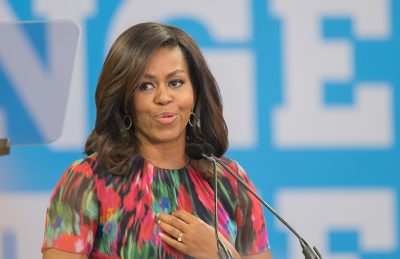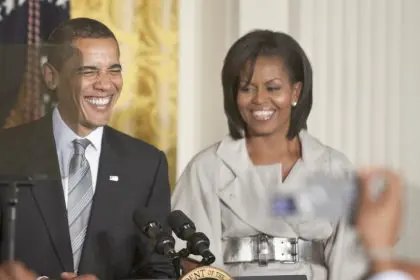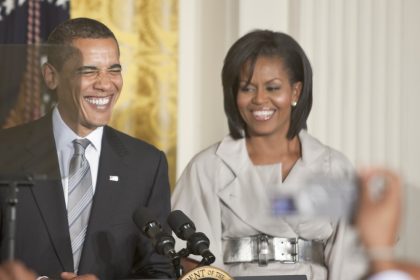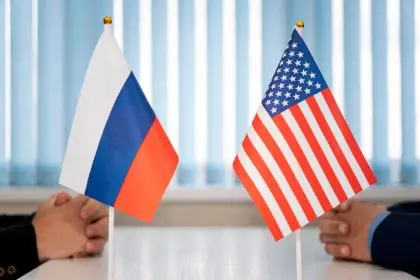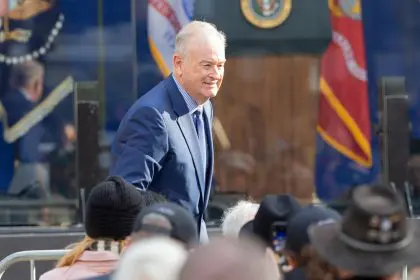Barack Obama stepped into unfamiliar territory Tuesday night, delivering one of his most politically charged speeches since leaving the White House. The former president’s appearance at the Connecticut Forum in Hartford marked a dramatic departure from his typically reserved post-presidency approach, as he issued an urgent call for widespread resistance across American institutions.
The 44th president’s message was unmistakable, even though he carefully avoided mentioning his successor by name. Obama painted a stark picture of American democracy under siege, warning that the nation stands dangerously close to authoritarian rule. His words carried the weight of someone who has watched the political landscape transform in ways that clearly alarm him.
A president’s unprecedented warning
Obama’s speech represented a significant moment in modern American politics. The former president, known for his measured rhetoric and adherence to traditional post-presidency norms, abandoned his usual diplomatic approach. Instead, he delivered what can only be described as a battle cry for democracy’s defenders.
The setting itself revealed the complexity of Obama’s position. Despite delivering such a consequential message, he chose to speak at an event where audio and video recordings were prohibited. This decision seemed counterintuitive for someone attempting to rally the nation, yet it reflected the delicate balance Obama continues to navigate as a former president.
His remarks focused on the reality that Americans across all sectors of society will face unprecedented tests in the coming years. Obama emphasized that defending democracy would require uncomfortable sacrifices from everyone, from law firms and universities to members of both political parties and even Justice Department officials.
The price of resistance
Obama didn’t shy away from describing the real-world consequences that institutions and individuals might face for standing up to what he characterized as authoritarian pressure. He specifically addressed law firms, suggesting that those who refuse to capitulate to political pressure should expect reduced billings. His reference to lawyers potentially having to forgo remodeling their Hamptons kitchens injected a note of dark humor into an otherwise sobering assessment.
The former president also warned businesses about potential retaliation, including politically motivated investigations and delayed merger approvals. These weren’t abstract concerns but concrete examples of how resistance might manifest in the current political climate.
Perhaps most significantly, Obama twice referenced Justice Department employees, positioning them as crucial guardians of constitutional principles. His emphasis on these civil servants suggested he views them as a critical line of defense against potential abuses of power.
A measured but urgent message
Throughout his remarks, Obama walked a careful line between urgency and restraint. He spoke in broad generalities rather than specific accusations, maintaining the diplomatic approach that has characterized his post-presidency years. Yet his meaning was crystal clear to anyone paying attention to the current political landscape.
The former president acknowledged that his assessment of democracy under threat might once have been considered controversial but suggested it had become widely accepted. However, polling data suggests this view remains more partisan than Obama indicated, with roughly half of Americans expressing concern about democracy being under attack.
This disconnect between Obama’s assessment and broader public opinion highlights one of the challenges facing those who share his concerns. While Democrats have increasingly embraced the democracy-under-threat narrative, Republicans have moved in the opposite direction following the 2024 election results.
The leadership vacuum challenge
Obama’s careful approach to political commentary comes at a time when his party desperately needs authoritative voices. The Democratic Party currently faces what many observers describe as a leadership vacuum, making it difficult to compete with the constant stream of provocative statements from the current administration.
Polling consistently shows Obama remains the most popular living president, with approval ratings that span party lines to an extent rarely seen in modern politics. His popularity gives him a unique platform that few other Democratic figures can match, yet he continues to use it sparingly.
The former president’s reluctance to fully embrace a more aggressive political role reflects the traditional expectations for ex-presidents. The longstanding norm dictates that former presidents should avoid direct criticism of their successors and remain above partisan political battles. Obama has largely honored this tradition, with notable exceptions during campaign seasons.
Historical parallels and precedents
Obama’s situation bears striking similarities to other moments in American history when respected figures faced difficult decisions about speaking out against perceived threats to democracy. His careful approach mirrors that of military leaders who served under the current administration, many of whom gradually moved toward public criticism but often in indirect ways.
These generals and former officials frequently voiced their concerns through book publications or carefully worded interviews rather than direct political engagement. Critics argued that this restrained approach undermined the urgency of their warnings, suggesting that if they truly believed democracy was in jeopardy, they should have been more forceful in their advocacy.
The same tension now applies to Obama’s position. While he clearly believes the situation demands urgent action, he remains constrained by his respect for presidential norms and his desire not to overshadow emerging Democratic leaders.
The broader resistance movement
Obama’s call for institutional resistance comes at a moment when grassroots activism has reached levels not seen since the beginning of the previous Trump administration. Across the country, various organizations and individuals are grappling with how to respond to what they perceive as threats to democratic norms and institutions.
The former president’s message serves as both validation and guidance for these efforts. By explicitly calling for uncomfortable sacrifices, he acknowledged that meaningful resistance requires more than symbolic gestures or social media activism. His emphasis on institutional involvement suggests a strategy focused on leveraging existing power structures rather than relying solely on street-level organizing.
Looking toward the future
As Obama continues to navigate his post-presidency role, his Hartford speech may represent a turning point in his approach to contemporary politics. While he maintained his characteristic restraint, the urgency of his message suggested he may be prepared to take a more active role in defending democratic institutions.
The former president’s popularity and credibility give him unique influence in American politics, yet he has consistently chosen to exercise that influence carefully. His latest remarks suggest he recognizes the gravity of the current moment while still honoring the traditions that have guided his post-presidency conduct.
Whether Obama will continue to speak out more forcefully remains to be seen. His Hartford appearance may have been a one-time departure from his usual approach, or it could signal a new phase in his public engagement. What seems certain is that his words have resonated with those who share his concerns about democracy’s future, even as they were delivered to a limited audience under unusual circumstances.
The challenge for Obama and others who share his perspective remains how to effectively communicate their concerns to a broader public that remains divided about the nature and extent of threats to American democracy. His Hartford speech provided a framework for resistance, but translating that framework into effective political action will require sustained effort from the institutions and individuals he called upon to make uncomfortable sacrifices for democracy’s sake.


